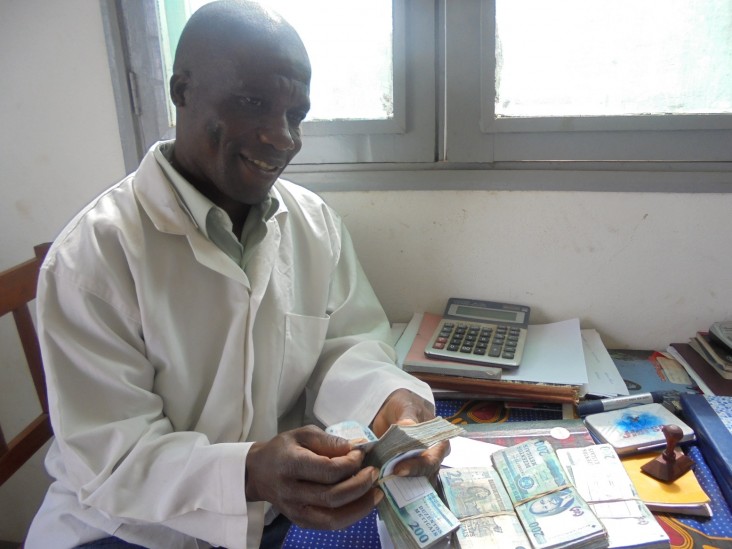
Oct. 2014—Access to finance remains a critical obstacle for Mozambican smallholder farmers. A 2010 national survey found that only 2.4 percent of Mozambique’s 3.8 million farms have accessed credit—hamstrung by physical distance from banks, financial illiteracy, small crop volumes and high interest rates.
Of those who did get credit, only 3.7 percent got loans from commercial banks, which remain skittish in the absence of crop insurance and collateral markets. But buyers of various commodities are stepping into the breach, lending farmers’ organizations the funds to commercialize their produce and paying a premium to those that meet the terms of the contract.
Since 2009, USAID’s AgriFUTURO project has connected agribusinesses and smallholders by helping develop supply contracts between farmer associations and buyers. In Beira Corridor, the project connected Export Trading Group (ETG)—a multinational agribusiness with operations in 26 African countries—to several farmer associations so their smallholder members can sell to major markets.
In Manica province, Kuguta Kuchanda Cooperative, Culima Cuacanaca Association, Batane Phaza and SIWAMA—which together represent nearly 4,700 farmers—have all received advances from ETG to purchase sesame and pigeon peas from their members, which they then sell to ETG at an agreed-upon higher price, generating a new market. Between June and August 2014, Kuguta Kuchanda delivered its first batch of 30 tons of sesame to ETG for $40,000—the total contract is for 120 tons this season. Culima Cuacanaca Association and Batane Phaza received packing bags from ETG and advances to purchase pigeon peas. Agro-Pecuaria Samora Machel will also sell to ETG, but instead of relying on an advance, it will use its own funds to purchase from its 1,381 members.
As an example of how this arrangement works, Armindo Jone, treasurer of Culima Cuacanaca Association, received an advance from ETG of 80,000 Mozambique meticais (approximately $2,666), to buy 10 tons of pigeon peas, which he will then sell to ETG at a slightly higher price, minus the advance. The arrangement gives ETG a guaranteed source, and allows the association to secure a new market for its produce. To meet the demand of a guaranteed buyer, the association is producing higher volumes and keeping a closer eye on quality. The ripple effects are significant: Farmers do not pay any interest for these loans while gaining the buyer’s trust for future business relations.
“USAID connects us with financial institutions, input suppliers and buyers, which forces us to improve the quality of the products we are producing and selling … and we can see the results,” said António Raimundo, vice president of Agro-Pecuaria Samora Machel.
USAID continues to foster these relationships by assessing crop volumes—which are rising thanks to buyer involvement and AgriFUTURO technical assistance—and witnessing the signing of purchase contracts. During the course of the project, USAID has worked with agribusinesses and farmers’ associations to raise the competitiveness of the Mozambican private agribusiness sector through the development of high-impact value chains like soybean, groundnuts, sesame, pigeon peas, cowpeas and common beans. This work has raised the incomes and improved the food security of over 36,000 poor rural households which, in 2013 to 2014, produced a combined estimated value of over $21 million—or an average of $581 for each member household.
LINKS
Follow @USAIDMozambique, on Facebook, on Flickr, on YouTube







Comment
Make a general inquiry or suggest an improvement.